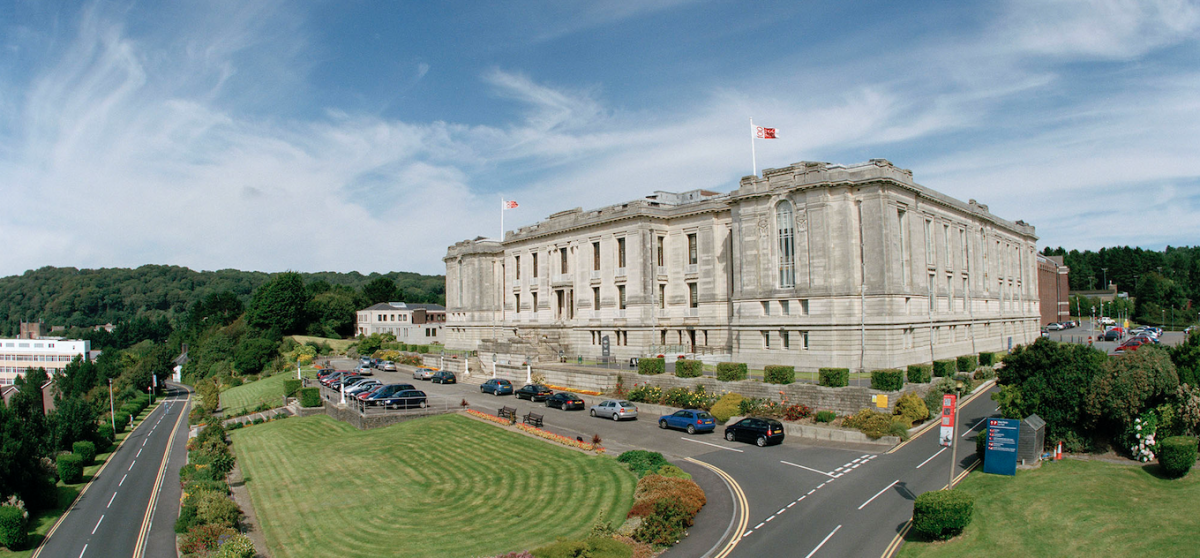You are viewing your 1 free article this month. Login to read more articles.
Six questions for...the National Library of Wales' Pedr ap Llwyd
Pedr ap Llwyd, chief executive and librarian of the National Library of Wales, shares his thoughts on the Welsh book trade and the library's future plans:
How did you come to be appointed National Librarian?
The National Library of Wales is based in Aberystwyth; I first came in 1989, when I was appointed to a post at the Welsh Books Council (WBC), where I worked until 2002. Books have always been important to me, and working at the council suited me perfectly. Prior to my appointment as chief executive and librarian, I served the library as its secretary and head of corporate governance, and its director of collections and public programmes.
What are your thoughts on the Welsh publishing industry?
Although the Welsh publishing industry faces many challenges, we are not short of talented writers and gifted individuals, nor established and confident publishing houses or excellent Welsh-language bookshops. We also have a government that supports publishing, which is absolutely crucial. It does this mainly through WBC and Literature Wales, two organisations that deliver ambi- tious programmes and services to support and develop a thriving, viable publishing industry.
WBC provides specialist services to the book and magazine publishing trade in Wales, and its remit is to support and develop the publishing industry in Wales in both English and Welsh—however, it has a key mandate in promoting Welsh-language publishing. It provides subsidised specialist services to the industry and grants, aiding the creation of around 300 titles annually.
Literature Wales facilitates and stimulates literature programmes and events throughout Wales, and promotes the best of our literatures internationally. Its varied projects and activities include: Wales Book of the Year, the National Poet of Wales, Bardd Plant Cymru and Young People’s Laureate Wales, creative writing courses at T Newydd Writing Centre, Roald Dahl 100 Wales, services for writers (including bursaries and mentoring) and literary tourism initiatives.
What are your favourite books from Wales—and beyond?
With the exception of the Welsh Bible, it must be Traed Mewn Cyffion (Feet in Chains) by Kate Roberts. In this 1936 novel, we see a passionate and determined woman struggling to bring up six children on the pittance earned by her slate-quarrying husband. Spanning 40 years, the novel traces the contours of not only one Welsh family but of a nation coming to self-consciousness; it begins in the heyday of Nonconformist fervour and ends in the carnage and disillusionment of the First World War.

What are your plans for the future of the library?
Our plan, funding permitting, is to establish a National Broadcast Archive here at the library and, working closely with Welsh Government, to establish a National Contemporary Art Gallery for Wales, with its local base being located at the library.
A National Broadcast Archive would provide the library with a unique opportunity to make extraordinary digital resources available to the Welsh public and provide a national broadcast archive fit for the 21st century. BBC Wales’ archive is a central part of our nation’s identity and shared memory, in Welsh and English. We enjoy a strong relationship with BBC Wales and this project has the potential to make a huge impact on communities which, for various reasons, do not benefit directly from the library’s services.
Like many local and national institutions, the library is experiencing a challenging period that is characterised by decreasing staffing levels—which have fallen 30% over the past five years due to reduced funding. This has resulted in a critical loss of expertise and experience.
What role do you think the National Library, and libraries in general, play in Welsh life?
Engaging with cultural activity encourages citizens to re-connect and believe that they have a stake in Welsh society. This library, together with libraries in general across Wales, are gateways to knowledge and lifelong learning, and we will proactively work with communities and other organisations to bring people together to celebrate and promote a shared interest in our heritage and history.
How do you think Brexit will affect the library?
The library has a longstanding commitment to working internationally and has established several important partnerships with other research libraries, including those in the EU. Brexit has the potential to impact negatively on these relationships, depending on the [exit] agreement reached with the EU. There are several core elements of service delivery which could also be affected by Brexit, including a loss of funding sources, an adverse impact on acquisitions, electronic subscriptions and managing copyright.
This piece is part of The Bookseller's country focus on Wales. For more in the series, click here.














